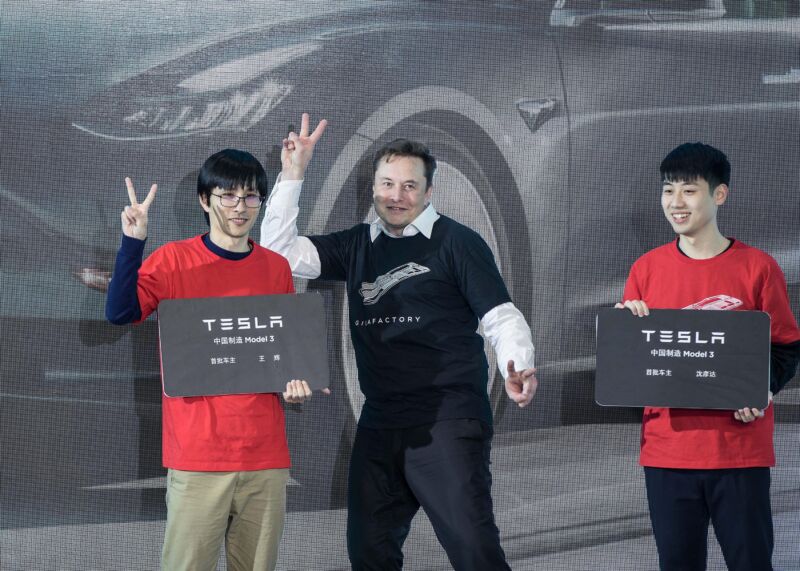Tesla’s close ties to China draw scrutiny of GOP lawmaker

Tesla may have a new headache on its hands. On Sunday, the electric car maker announced plans to build a new battery factory in Shanghai with an annual capacity of 40 GWh, with the cells destined for “Megapack” storage batteries, each with 3.9 MWh of storage capacity. But this plan has raised eyebrows among some lawmakers, who are suspicious of Tesla’s ties with the Chinese Communist Party.
“I’m concerned about this,” said Representative Mike Gallagher (R-Wis.). “Tesla seems entirely dependent, A, on the largesse of the federal government via tax breaks, and B, upon access to the Chinese market,” he told Reuters. Gallagher is chair of the House Select Committee on the Chinese Communist Party, which describes itself as “committed to working on a bipartisan basis to build consensus on the threat posed by the Chinese Communist Party and develop a plan of action to defend the American people, our economy, and our values.”
The Select Committee on the CCP was created at the start of the year by incoming Republican House Speaker Kevin McCarthy.
Gallagher has not announced any hearings on the matter nor requested further information from Tesla on the matter—the select committee website is devoid of any upcoming activity, nor has it worked on any bills. But Gallagher told Reuters that “if we reach roadblocks and we get to a point where lawyers are getting involved with answers, that’s when you start to think about subpoenas.”
Tesla CEO Elon Musk has not commented on Gallagher’s remarks or the possibility of hearings into Tesla’s links to the CCP, but on Sunday, he did wade into a Twitter argument between a pair of investors about the factory, telling them that “Tesla is increasing production rapidly in Texas, California, and Nevada” and that “our competitors require subsidies, not us.”
While the company borrowed $1.4 billion from Chinese banks in 2019, it repaid the loan ahead of time in 2021. And while Tesla may not require subsidies, it has dropped its prices to make its cars eligible for clean vehicle tax credits in the US. (Indeed, after the IRS changed how it classifies cars versus SUVs, Tesla raised prices once it knew the Model Y was still eligible, suggesting that the US tax credit is considered important at Tesla HQ.)
Chinese-made lithium iron phosphate battery packs used in some variants of the Model 3 are the reason those EVs are only eligible for half of the $7,500 clean vehicle tax credit. Additionally, there is now language in the tax credit rules that specifically excludes any EVs with battery components made by “foreign entities of concern,” which includes companies owned or controlled by the CCP. That provision will go into effect in 2024.
https://arstechnica.com/?p=1930752